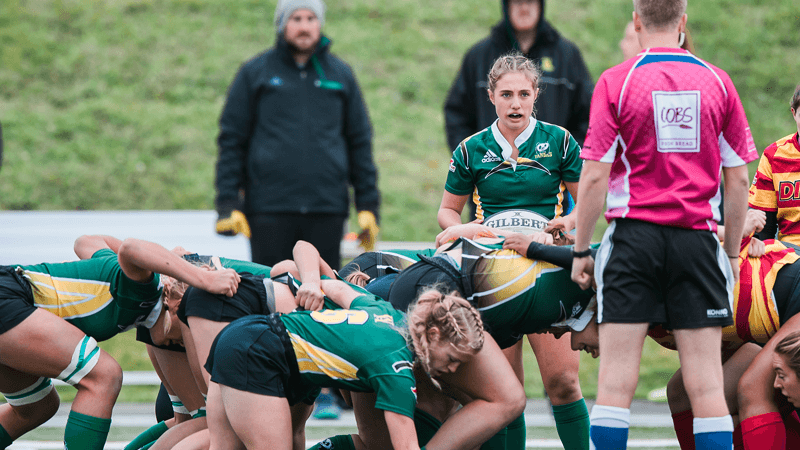A Dutch athlete has called for a ban on men in women’s rugby after an injury from a trans player ended her career.
Elena King’s knee was torn from its socket when she was tackled by a male player identifying as a woman in a Dutch premiership rugby match in January. She was told that she will have life-long knee pain and needs to endure months of physiotherapy before she can run again.
The Dutch rugby association Rugby Nederland (RN) has since set up a group to review policies and make recommendations on transgender athletes, but has been criticised for not acting before the injury happened. World Rugby banned men from international women’s contact rugby in 2020 due to the risk of injury.
Inclusion over safety
King told The Sunday Times that a woman “could not have pulled my leg out of its socket” and added: “It could have been prevented.”
She criticised the organisers for endangering women to promote an ideology: “They allow transgender women to play in a contact sport like rugby because they put inclusivity above our safety.”
The twenty-year-old stated: “I hope we can create a future where we don’t have to worry about being labelled as transphobic when talking about safety and our own spaces.
“And even more important, a future where we don’t have to worry about getting hurt by someone with male strength when we only want to play the sport we so love.”
Male advantage
Last year, the same man knocked unconscious another female rugby player in a match. She is still undergoing tests for suspected brain injury and can no longer use a helmet due to migraines.
She said: “Although I think that everyone should have a chance, this is already a dangerous sport. Biological men are just much stronger.”
A clinical physiology expert from the Karolinska Institutet in Sweden, Dr Tommy Lundberg, criticised sports federations for waiting until high-profile cases happen before acting. He explained: “Males certainly have a profound advantage in both muscle mass and strength and power and especially in the upper body”.
Board member at RN Simone de Bruin commented: “Inclusion, fairness, and player safety are extremely important principles of the sport of rugby. Precisely because the risk of injury is higher in rugby, RN takes safety on the field very seriously.”
FA revised policy
Women in England and Scotland will no longer be forced to play football against men who identify as female, following the UK Supreme Court’s recent ruling on the definition of ‘woman’.
The English Football Association announced that only true women will be allowed to play in women’s matches from 1 June. In Scotland, a revised policy for competitive matches is set to be introduced at the beginning of the 2025/26 season.
Currently, men in both countries can compete in women’s football on a case-by-case basis involving the reduction of testosterone levels.
Writing in The Daily Mail, former Olympian Sharron Davies MBE said: “Women and girls should never have had to fight for their right to play football, run, swim – whatever their choice of sport is – in a fair and safe way.”
FA drops case against teen who was suspended for asking if her opponent was male
England Hockey declares women’s game for ‘females at birth’ only


